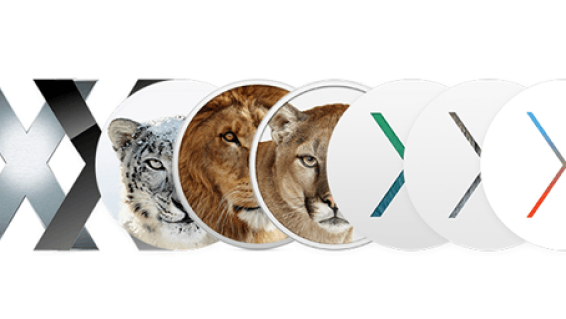
Written by me@grafxflow
03 Jan, 2010
0
6,562
Here is a quick overview of the evolution of Mac OS X/macOS since its first version, Kodiak and how the logo and package branding has changed over time.
13 Sep 2000
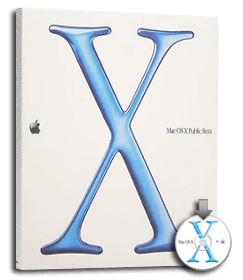
10 Beta Developer Release 2 Latest Version BETA NO LONGER SUPPORTED
The history of macOS started with the code name of a bear rather than a cat. It was in September of 2000 that Apple presented Kodiak. For 30$ people could purchase the firts public Beta of Mac OS X.
24 Mar 2001
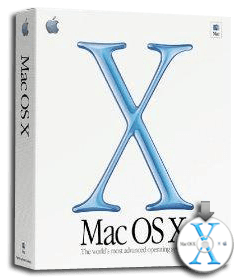
10.0 10.0.4 Latest Version NO LONGER SUPPORTED
6 months later the official OS 10.0 (Cheetah) was released. If featured the brand new user interface called Aqua and new versiosn of apps such as TextEdit, Preview, Mail, and QuickTime.
The specs required for this new OS X (at the time were epic!)... 128 MB of RAM and 800 MB of disk space.
25 Sep 2001
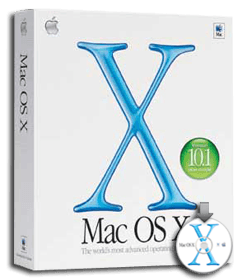
10.1 10.1.5 Latest Version NO LONGER SUPPORTED
Just half a year later, Puma was released. Instead of delivering many new features, it focused on improving the system's performance.
With Mac OS 10.1.2, Apple also started shipping OS X by default with new computers - and replaced OS 9 for good.
24 Aug 2002
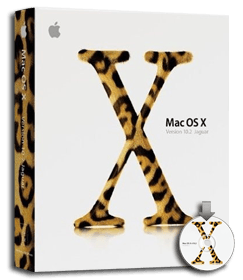
10.2 10.2.8 Latest Version NO LONGER SUPPORTED
Jaguar featured new applications like iChat and Address Book. It also introduced Universal Access, a component that made OS X more usable for people with visual and hearing impairment or physical disability.
Besides that, OS 10.2 showed a new startup screen: it replaced the Happy Mac logo with the new, fruity Apple icon.
24 Oct 2003
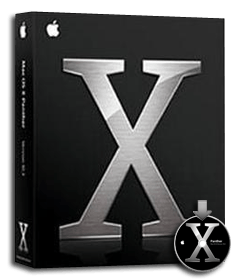
10.3 10.3.9 Latest Version NO LONGER SUPPORTED
Microsoft must have had mixed feelings with Panther: on the one hand, Internet Explorer for Mac was superseded by the new Safari as the default web browser. On the other hand, 10.3 brought many interoperability improvements with Microsoft Windows (including out-of-the-box support for Active Directory).
Additionally, Apple presented Exposé to improve working with multiple open applications.
29 Apr 2005
![Tiger (Merlot [PPC], Chardonay [Intel]) Tiger (Merlot [PPC], Chardonay [Intel])](/storage/app/media/blog-images/2010/375/tiger_03_01_2010.png)
10.4 10.4.11 Latest Version NO LONGER SUPPORTED
Tiger brought the invaluable Spotlight search to Mac OS. It was also the first version to present Widgets (like a calculator, a calendar, or a clock) on the new Dashboard.
Besides that, Mac OS 10.4 inaugurated new hardware: it was installed both on the first Macs with Intel processors and on the first Apple TV devices (that were yet to come out later, in 2007).
26 Oct 2007
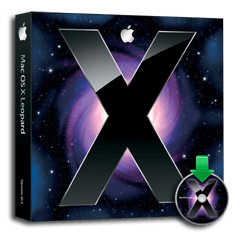
10.5 10.5.8 Latest Version NO LONGER SUPPORTED
No other Mac OS had been such a long time in the coming. However, Apple had been busy developing and releasing iOS and the iPhone in the meantime...
The new Leopard, anyhow, introduced a built-in backup system called Time Machine. It also brought full support for 64-bit applications.
Moreover, Mac computers could now run other operating systems like Microsoft Windows - thanks to Boot Camp.
It's also in this version that support for running the classic Mac OS 9 environment was dropped.
28 Aug 2009
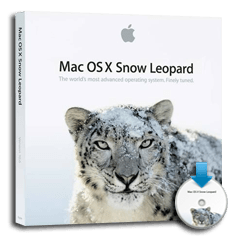
10.6 10.6.8 Latest Version NO LONGER SUPPORTED
Like the name suggests, Snow Leopard built mainly on top of its predecessor, Leopard. However, it introduced the new Mac App Store that was inspired by its successful companion on iOS.
Mac OS 10.6 also marked the end of the PowerPC architecture. Only Intel-based Macs were supported from this point on.
20 Jul 2011

10.7 10.7.5 Latest Version NO LONGER SUPPORTED
The king of all cats, Lion, was the first version of Mac OS that wasn't available on CDs or DVDs anymore. The exclusively downloadable OS picked up many ideas from iOS: Gestures, Launchpad, window restoring, ...
Apple's newest part of infrastructure, iCloud, also debuted in Mac OS 10.7.
25 Jul 2012

10.8 10.8.5 Latest Version NO LONGER SUPPORTED
Mountain Lion brought even more successful concepts from iOS to the Mac: a new Messages app to replace iChat, the Reminders app, and the Notification Center.
Even before presenting OS 10.8, Apple made a big announcement: it committed to a yearly release cycle for new versions of Mac OS.
22 Oct 2013
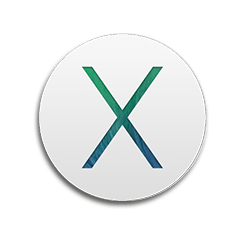
10.9 10.9.5 Latest Version NO LONGER SUPPORTED
With Mavericks, Apple didn't only introduce a new naming scheme for its operating system. It also made OS 10.9 a free upgrade and promised to keep future updates free, too.
New applications like Maps and iBooks were also presented with Mavericks.
16 Oct 2014
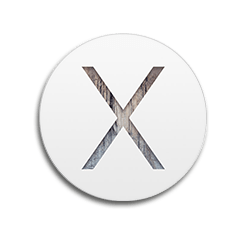
10.10 10.10.5 Latest Version NO LONGER SUPPORTED
The biggest design change in years, Mac OS 10.10 follows its little brother iOS - with a flatter appearance and blurred transparency effects.
With the new Handoff functionality, users are able to move seamlessly between devices, even during individual tasks. Apple also emphasizes its Full Screen Mode feature: it's now triggered through the traditional green button in the window title bar.
30 Sep 2015
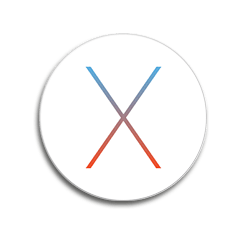
10.11 10.11.6 Latest Version NO LONGER SUPPORTED
El Capitan, named after a rock formation in Yosemite National Park, concentrates on performance & stability improvements.
Besides some smaller enhancements to Safari, Spotlight, Mail, and Notes, the introduction of Split Views is probably the biggest novelty: a way to conveniently arrange two applications' windows side-by-side.
20 Sep 2016
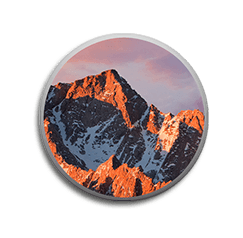
10.12 10.12.6 Latest Version NO LONGER SUPPORTED
Goodbye OS X, hello macOS: once more, Apple's desktop operating system moves closer to its iOS sibling. And it's not only the name: Siri, also originally introduced on the iPhone, is now on macOS, too.
Also in Sierra, Safari officially introduces Apple Pay and Apple Watch can now unlock your Mac.
25 Sep 2017
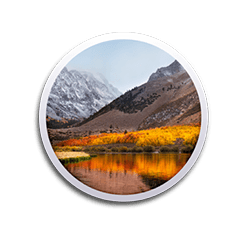
10.13 10.13.6 Latest Version NO LONGER SUPPORTED
Much like El Capitan two years before, High Sierra concentrates mostly on "under the hood" improvements. The Apple File System, for example, brings faster file operations and better security. With HEVC, Apple now supports a new video standard - with up to 40% better compression than previously.
As far as applications are concerned, especially Safari and Photos get a new coat of whitewash (and some new features).
24 Sep 2018
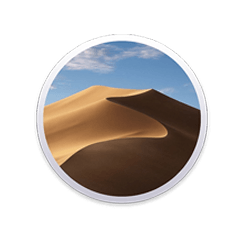
10.14 10.14.6 Latest Version NO LONGER SUPPORTED
Mojave is a very visual update. Partly due to Dynamic Desktop (which delivers time-shifting desktop pictures), but especially due to the new Dark Mode (which offers a dark appearance for all built-in and many third-party apps).
Apart from improvements to Finder and FaceTime, Apple brings over four new Mac apps from iOS: News, Stocks, Home, and Voice Memos.
7 Oct 2019
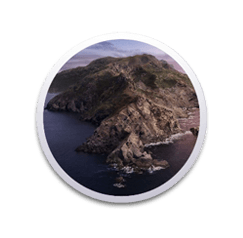
10.15 10.15.7 Latest Version NO LONGER SUPPORTED
Catalina's primarily focuses on updates to built-in apps, such as replacing iTunes with separate Music, Podcasts, and TV apps, redesigned Reminders and Books apps, and a new Find My app. It also features Sidecar, which allows the user to use an iPad as a second screen for their computer, or even simulate a graphics tablet with an Apple Pencil. It is the first version of macOS not to support 32-bit applications.
12 Nov 2020
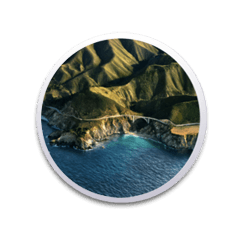
11.0.1 11.7.10 Latest Version NO LONGER SUPPORTED
macOS Big Sur brings a major user interface redesign. It is also the first macOS version to support Macs with ARM-based processors. To mark the transition, the operating system's major version number has been incremented from 10 to 11, for the first time since the release of the Mac OS X Public Beta in 2000.
25 Oct 2021
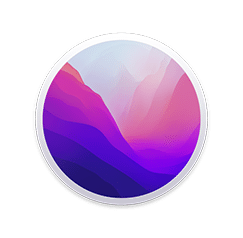
12 12.7.6 Latest Version NO LONGER SUPPORTED
macOS Monterey introduces new features such as Universal Control, AirPlay to Mac, Shortcuts application, and more. Universal Control allows users to use a single Keyboard and Mouse to move between devices. Airplay now allows users to present and share almost anything. The Shortcuts app was also introduced to macOS, giving users access to galleries of pre-built shortcuts, designed for Macs, a service brought from iOS. Users can now also set up shortcuts, among other things.
24 Oct 2022
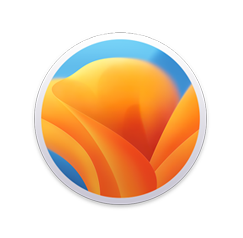
13 13.7.6 Latest Version SUPPORTED
macOS Ventura (version 13) is the nineteenth major release of macOS, Apple's desktop operating system for Macintosh computers.
The successor to macOS Monterey, it was announced at WWDC 2022 on June 6, 2022. It is named after the city Ventura in California, following the home state naming system that started with OS X Mavericks.
The first developer version was released on June 6, 2022, while the first public beta was released on July 11, 2022. The final release is to be in October 2022.
26 Sep 2023
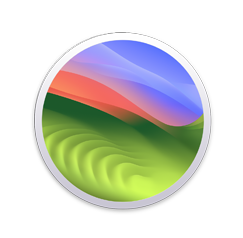
14 14.7.6 Latest Version SUPPORTED
macOS Sonoma (version 14) supports Macs with Apple silicon and Intel's and 8th-generation Coffee Lake/Amber Lake chips or later and drops support for various models released in 2017. The 2019 iMac is the only supported Intel Mac that lacks a security T2 chip. Sonoma supports the following Mac models:
16 Sep 2024
15 15.5 Latest Version SUPPORTED
macOS Sequoia (version 15) is the twenty-first and current major release of Apple's macOS operating system, the successor to macOS Sonoma. It was announced at WWDC 2024 on June 10, 2024. In line with Apple's practice of naming macOS releases after landmarks in California, it is named after Sequoia National Park, located in the Sierra Nevada mountain range. The first developer beta was released on June 10, 2024.
The first public beta was released on July 15, 2024, and the second was released on July 23, 2024. It was released on September 16, 2024
22 Nov, 2014
02 Jul, 2018
11 Nov, 2018

I am a Full-stack Developer who also started delving into the world of UX/UI Design a few years back. I blog and tweet to hopefully share a little bit of knowledge that can help others around the web. Thanks for stopping by!
Follow20 May, 2025
11 Jul, 2023
Views: 169,311
Views: 41,886
Views: 39,671
Views: 36,494